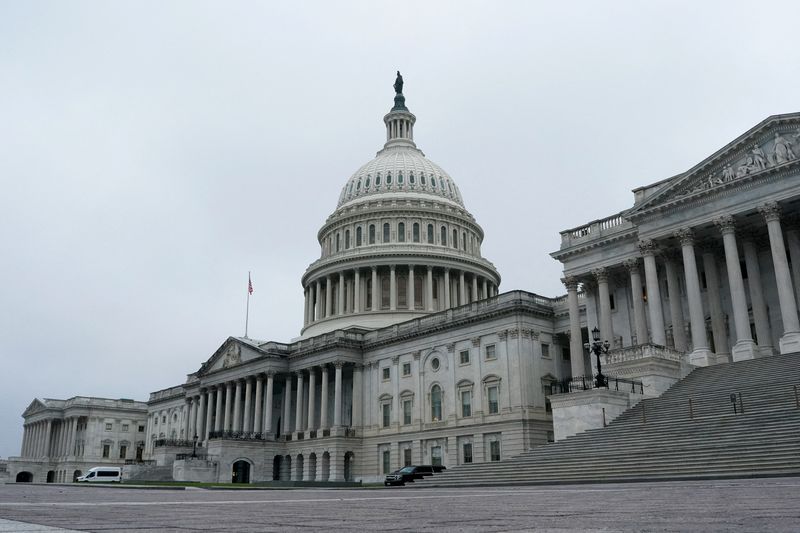(Reuters) -The opinions expressed here are those of Dhara Ranasinghe, Editor, Financial Markets, EMEA.
All eyes remain focused on Washington, with Senate Republicans still locked in a marathon session, known as “vote-a-rama”, as they try to pass a contentious tax cut and spending bill that could add trillions of dollars to the country’s already high debt load.
This hasn’t helped the dollar, which is languishing at its lowest levels against the euro in almost four years, as the fiscal bill keeps debt worries front and center for global investors.
Mike Dolan is enjoying some well-deserved time off over the next two weeks, but the Reuters markets team is here to provide you with all the information you need to start your day.
Today’s Market Minute
* U.S. Senate Republicans were still trying to pass President Donald Trump’s sweeping tax-cut and spending bill early on Tuesday morning, despite divisions within the party about its expected $3.3 trillion hit to the nation’s debt pile.
* President Trump suggested on Tuesday that the government efficiency department should take a look at the subsidies that Tesla (TSLA.O), opens new tab CEO Elon Musk’s companies have received in order to save money.
* President Trump expressed frustration with U.S.-Japan trade negotiations on Monday as Treasury Secretary Scott Bessent warned that countries could be notified of sharply higher tariffs as a July 9 deadline approaches despite good-faith negotiations.
* There has been much discussion of the so-called “Trump put” for equities, but perhaps more attention should be paid to the administration’s effective “Treasury Put”, claims Stephen Jen, CEO and co-CIO of Eurizon SLJ asset management.
* U.S. power sector emissions are already at their highest levels in three years, writes ROI columnist Gavin Maguire, but they are likely to climb even higher in the coming months.
Vote-a-rama is still going on
Senators are voting in a marathon session featuring a series of amendments by Republicans and the minority Democrats, part of the arcane process Republicans are using to bypass Senate rules that normally require 60 of the chamber’s 100 members to agree on legislation.
It is unclear how long the voting, which started on Monday, will last.
What’s interesting is how financial markets are reacting to developments on the Hill.
As mentioned above, the latest signs of U.S. policy uncertainty and concern about ever-rising deficits are weighing on the dollar.
Now look at bond markets, which have been notably quiet in the face of fiscal worries.


